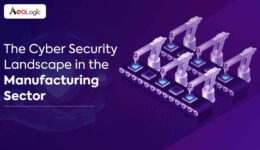As the business evolves, it is quite difficult to manage all the operations and business goals manually. This leads to introducing the enterprise base software for easily automating as well as streamlining the complete process.
Based on a recent report, mobile app revenue globally has increased to generating more than 935 Billion US Dollars. Business finds it a completely efficient option for reaching customers from across the world by having their official apps.
According to a study, 2.87 million Android apps and 1.96 million iOS apps are downloaded from PlayStore and PlayStore respectively. Another report also states the average mobile time of the users is about 3 hours and 43 minutes per day. In the modern day, there are multiple categories of mobile applications available.
These could be easily designed and developed based on the preference and requests of the users. These come under the most important categories, such as Enterprise Mobility Apps and Consumer or Standard Apps.
Mobile apps can be easily designed and developed based on the preference and requests of the users. Furthermore, you can also use take into consideration the latest enterprise mobility trends while developing enterprise mobile app solutions. They come under the most important categories, such as Enterprise Mobility Apps and Consumer or Standard Apps.
What Is Standard Application Development?
In the modern day, there is a wider technological progression increasing at a great speed. So many organizations have been increasing the standard by outsourcing the service to offshore app developers. These are especially involved with customer-focused standard software development.
Standard Software Development services involves a model in which the pre-built tools could be extensively sold straightforwardly for the clients in the fit-and-play aspects. Normally, this software could be introduced for individual gadgets as unique applications.
Some examples of standard software are:
- Individual Productivity – Planning and efficiency devices
- Data Security – infection scanner and more
- Monetary Tools – Tax software, as well as other devices
- Instructive software – language learning apps
- Data Tools – Maps, monetary news, and more
- Media and Games – Games and music players
- Innovativeness Tools – Tools for making workmanship, music, artworks, and more
- Office Productivity Tools – Tools for reports
- Specialized Tools – Voice-over-IP software or informing applications
Standard Application Development is built using the unique Development Kit. This includes tools and libraries for developing, testing, as well as converting applications based on the requirement.
What Is Enterprise Application Development?
Normally, the software built for enterprises and not for individuals is called the enterprise app or software. Businesses looking for a better way to develop a robust and scalable application can hire an enterprise app development company to meet specific needs. It will be a great option for extensively seeking a professional team for developing advanced enterprise apps.
In the modern day, many businesses have been facing problems based on manual operations with big data. Enterprise Application Development is one of the significant ways to save time easily with a significant approach. Enterprise software development also varies from one business to another.
Below are some examples of Enterprise Applications or Software:
- Client Relationship Management (CRM)
- Enterprise Resource Planning (ERP)
- Enterprise Asset Management (EAM)
- Business Intelligence (BI)
- Bookkeeping/Treasury Software
- Supply Chain Management (SCM)
- Enterprise Mobility Solutions
Normally, the development of enterprises can be quite challenging and complex. It is also important to have advanced skills even prior to that experience. Enterprise Application Development especially aims to enhance the efficiency, business functionality, and productivity of an organization.
Enterprise Application Development Vs Standard Application Development
1. Interconnectivity:
For enterprise software development, the software interacts with other tools as well as applications. Interconnectivity with the other devices in the enterprise is quite important for assuring various tools. Interconnectivity is what you can expect with enterprise software apart from regular ones.
Enterprise software products are required to collaborate with different applications in the association. Consistent interconnectivity acts as the major factor for Enterprise software development for different projects.
2. Scalability:
Scalability is one of the standard differences between Enterprise Application Development and Standard Application Development. When you are developing the app, it’s important to ensure to have advanced development architecture. Keep scalability in mind while choosing the right mobile app development framework for the project. React Native can be an ideal choice if you want to develop cross-platform enterprise or standard mobile app.
These would create better accessibility even without reducing drop-off in the system performance. Enterprise app development is packed with more scalability compared to those standard application developments.
3. Performance:
The performance level of standard application development and enterprise application development varies based on numerous factors. Enterprise Software works better in all areas for automatic operations. This standard application lacks this capability compared to the enterprise models.
Working along the multiple aspects of the business, even across the developed platform, is quite prominent. This includes mobile devices, which are convenient options for the business. Enterprise application development wins a higher level of performance.
4. Reaching Audience:
Normally, enterprise application development is designed to satisfy the needs of the user. Enterprise software development is perfect for the needs of larger businesses, even with the hierarchical structure. Standard application development targets individuals or even a smaller group of users.
5. Multichoice:
Availing the enterprise app development services lets you easily get accurate and precise enterprise-level solutions. These also involve multiple facilities for the requirements. Normally, the software or app is required to have unique designs tailored for each department in the company. Standard applications are mainly designed for individuals who only have a few options.
6. Storage:
Standard application package does not require worrying about storing a large number of files in a sensitive manner. In the modern day, many companies also have been using the information as a reference for measuring the success rate of the business. Enterprise app development depends on cloud storage along with security and scalability.
These also involve collaboration capabilities along other features. One of the alternative options is storing on the servers. These are less expensive compared to others. Secure Data conversion in standard applications is simpler compared to that of enterprise software. The standard application also covers more information compared to the enterprise application.
Development Process Of Enterprise Application Vs Standard Application:
Compared with standard applications, testing and configuration of enterprise applications are more complex. Programmers are required to write code for solving the enterprise-wide problem. This allows easily configuring or customizing the features. Enterprise applications need to work seamlessly with other apps along with sharing the data.
➜ Design:
Design is especially a central axis for the standard application, so the UI/UX can be customized. An immeasurable amount of ideas can be easily channeled by finding aesthetic elements to grip the user’s attention.
App developers would also be driven by UI/UX trends to improve stability. No such compulsive designs are available to program enterprise apps. These can be easily created to enable more efficiency.
➜ Testing:
Testing plays an important role in the development of projects. These are particularly significant for the enterprise levels. Normally, the Enterprise framework includes different customizations for a wide assortment of variables. It involves serious testing to guarantee the framework works seamlessly. Enterprise frameworks require more escalated preparation for the in-house data innovation and end-users.
➜ Customization:
Normally, every business uses the software in a unique way, so the customization features will be quite critical. Enterprises need to meet diverse needs and robust personalization compared to the standard application.
Getting complete seamless workflows across business systems is most important for all businesses. The enterprise app development needs to be connected with advanced tools such as CRM systems. These allow a better way of interconnecting with each of them.
➜ Cost:
The cost for the development of enterprise applications and standard applications varies. These involve the scope of the work in enterprise apps and consumer apps. Enterprise mobility apps especially cover only the smaller targeted audiences.
But it will be quite expensive compared to that of the consumer or standard applications. The main reason is that the planning and testing of the enterprise application are quite different compared to the standard apps.
Money is one of the major considerations for all the product development projects. There will be a higher distinction with the cost at which the enterprise level varies with other software. Software-as-a-service estimates with the expense of development along with upkeep charge.
➜ Functionalities:
Standard applications are lifestyle driven and specially built for people. The main aim is to simplify the choices consumers make in their daily lives. Many people also come to dictate as well as monetize conceivable aspects of human life, from health to leisure and many more. Normally, each industry can be defined based on enterprise mobile app developers for letting creativity.
Enterprise apps will be driven for extensively optimized and profitable business outcomes. Even irrespective of massive functions, these are supposed to reduce inefficiency. These also involve smoothening out the possible alternatives for saving the stakeholder resources, time as well as capital.
➜ Revenue Generation:
Consumer apps or standard apps generate more income in various aspects. This process includes the
- Subscription Mode – The process in which the user would be paying the monthly fees for availing of the service
- Indirect Monetization – Advertisers would pay the fee for reaching the user base using the targeted advertising.
Apps would be charging the business based on structured data. These are used for directly promoting the relevant services. For example, Facebook is one of the largest social networks having businesses paying ostentatious sums to reach the user. Based on a report, Disney spent a maximum of US $213.64 million in 2020.
Enterprise apps involve dual modes of income. These would vary based on numerous aspects as the B2B clients pay upfront. These involve the lifetime licensing fee for easily owning software. So the vendor would be making SLA customizations for software, and the It team would be responsible for managing the software. Enterprise software developers also have room for easily customizing and maximizing profit.
➜ Customization:
Normally, the Customization of enterprise applications lets us easily meet the unique requirements of the organization. These are the massive benefits of availing the enterprise app development services.
Organizations paying for the application will get full ownership of the product. These also enable limitless customization possibilities. Customization is also restricted for devices of the product suppliers. It also involves the multi-user environment.
Benefits Of Enterprise Software Development:
Enterprise applications will be owned by sole proprietorships, so it states they can be owned by proprietors, which is also not shared by multiple users. Apart from these, the external or In-house designers can also modify apps for a significant approach.
Below are the massive benefits of enterprise app development:
- Enterprise application strives to meet the organization’s operational needs
- Proprietors of business will be in complete control
- Enterprise software allows accurate reporting and querying from various devices
Hiring A Standard Application Developer Vs Enterprise Developer:
Enterprise application developers and standard application developers have different skill sets and experiences. So they could not be classified under the one-size-fits-all group.
The main reason is that the need for enterprise developers will be different from small businesses or startups. Each type of developer has a different hiring process as well as considerations. Below are the tips for employing an enterprise software developer
Hiring An Enterprise Software Developer:
✤ Skillset: An enterprise software developer needs to have specific skills for the task. It is important to specify the market niche or technology stack for the developers to focus on.
✤ Experience: Hiring enterprise application developers with a minimum of 3 years of experience is preferable.
✤ Cost: Invest in finding the right candidate
✤ Time: It is best to take more time to fill a position compared to a regular software developer position.
Hiring Standard Software Developer:
✤ Skillset: Many startups and businesses tend to hire software developers based on broad skill sets. Developers with diverse backgrounds are preferable.
✤ Experience: Experience is quite imperative for developers across all working environments. The developers are required to perform various tasks.
✤ Cost: Normally, it is quite cheaper to hire a freelance developer compared to an enterprise software developer.
✤ Time: Hiring entry-level developers for this position could take a short time to fill. These would also depend on specific projects, so you can utilize the online platform.
Wrapping Up:
In all the development plans for software products, the primary objective is to design software contextually. Developers are required to look beyond the current program function to build a successful program.
These are most important for achieving long-term goals. It is important to maintain and improve the software as your business expands. Unprecedented IT solutions especially require both business apps enterprise application development and standard application development.






